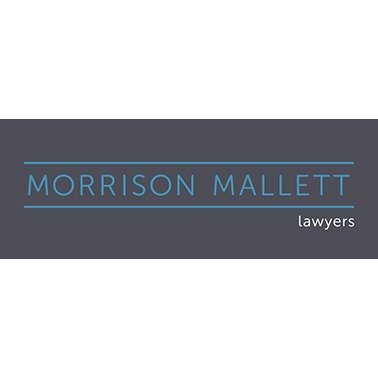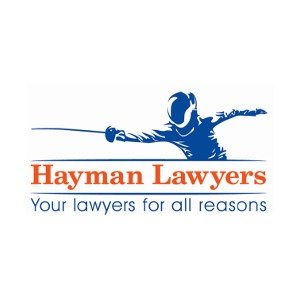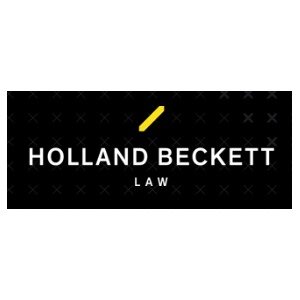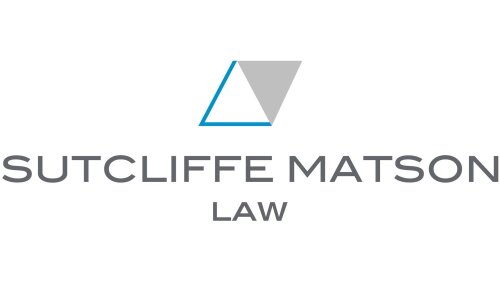Best Antitrust Litigation Lawyers in New Zealand
Share your needs with us, get contacted by law firms.
Free. Takes 2 min.
Or refine your search by selecting a city:
List of the best lawyers in New Zealand
About Antitrust Litigation Law in New Zealand
Antitrust litigation in New Zealand refers to legal actions taken to enforce or defend against allegations of anti-competitive behavior. Such behavior primarily concerns business practices that restrict competition, manipulate markets, or harm consumer interests. The central law governing antitrust matters in New Zealand is the Commerce Act 1986. This Act aims to promote competition in markets for the long-term benefit of consumers, prohibit cartels, prevent misuse of market power, and address mergers that could reduce competition.
Antitrust litigation can involve both civil and criminal proceedings. The Commerce Commission, New Zealand's regulatory authority, is primarily responsible for investigating and prosecuting breaches of these laws, although private parties affected by anti-competitive conduct can also initiate legal proceedings.
Why You May Need a Lawyer
There are several common scenarios in which legal assistance becomes crucial in the field of antitrust litigation in New Zealand:
- You or your business have been accused of engaging in anti-competitive behavior, such as price-fixing, bid-rigging, or forming a cartel.
- Your business is under investigation by the Commerce Commission for potential breaches of the Commerce Act.
- You suspect that another company is engaging in conduct that restricts competition and harms your business.
- You are considering a merger or acquisition and need guidance on compliance with competition regulations.
- You have received a notice to provide information during a market study or competition investigation.
- You wish to pursue damages in a private action for losses suffered due to anti-competitive conduct.
In all these situations, an experienced antitrust lawyer can help you understand your rights and obligations, provide representation during investigations or court proceedings, and mitigate legal and financial risks.
Local Laws Overview
The key piece of legislation governing antitrust, or competition law, in New Zealand is the Commerce Act 1986. Here are some of its most relevant features for antitrust litigation:
- Cartels: Agreements between competitors to fix prices, restrict output, allocate markets, or rig bids are prohibited. These are referred to as cartel conduct and can attract both civil and criminal penalties.
- Misuse of Market Power: Firms with substantial market power are banned from using it to substantially lessen competition in any market.
- Anti-competitive Agreements: Contracts or arrangements that have the purpose, effect, or likely effect of substantially lessening competition are prohibited.
- Mergers and Acquisitions: Mergers that are likely to substantially lessen competition are not allowed. Many businesses seek clearance or authorization from the Commerce Commission before proceeding.
- Penalties: Breaches can result in significant penalties, including fines, damages, and, for cartel conduct, potential imprisonment for individuals involved.
- Investigative Powers: The Commerce Commission has wide investigative and enforcement powers, including requiring businesses to provide information and documents.
Antitrust laws in New Zealand align closely with international practice but have local nuances and procedural requirements, so expert legal guidance is highly recommended.
Frequently Asked Questions
What is considered anti-competitive behavior in New Zealand?
Anti-competitive behavior includes actions such as price-fixing, bid-rigging, dividing markets among competitors, exclusive dealing, and mergers that would reduce competition. The Commerce Act 1986 sets out rules against such conduct.
Who enforces antitrust laws in New Zealand?
The Commerce Commission is responsible for enforcing competition and fair trading laws in New Zealand. They investigate suspected breaches and take legal action if necessary.
Can individuals or businesses bring private antitrust claims?
Yes, if you have suffered loss or damage as a result of another party's anti-competitive behavior, you can bring a civil claim under the Commerce Act for compensation.
Are cartels illegal in New Zealand?
Yes, cartels are strictly prohibited. Cartel conduct, such as price-fixing or market allocation between competitors, can result in civil penalties, fines, and even imprisonment for individuals.
What are the penalties for breaching antitrust laws?
Penalties include heavy fines for businesses and individuals, potential director disqualification for company officers, and criminal prosecution leading to imprisonment for serious cartel offenses.
Do mergers need approval from the Commerce Commission?
You are not legally required to seek approval before merging, but it is strongly recommended if the transaction could lessen competition. Many businesses voluntarily apply for clearance to avoid later enforcement action.
What is the process if the Commerce Commission starts an investigation?
The Commission will gather evidence, may conduct interviews or require document production, and then decide whether to take enforcement action. Legal advice is crucial during this process.
How can I defend my business if accused of anti-competitive conduct?
A lawyer can help you understand the allegations, protect your rights, respond to Commission inquiries, and represent you in negotiations or court proceedings. Early legal advice is essential.
What should I do if I discover potential anti-competitive conduct within my own company?
Seek legal advice immediately. You may need to conduct an internal investigation, consider reporting the behavior to the Commerce Commission, and implement compliance measures to prevent future breaches.
How long do antitrust litigation proceedings usually take?
The timeframe varies depending on complexity, but investigations and litigation can take months or even years. Early engagement with a lawyer can help resolve issues more efficiently.
Additional Resources
- Commerce Commission: The main regulator responsible for investigating and enforcing antitrust laws.
- Ministry of Business, Innovation and Employment (MBIE): Provides information and public guidance on competition policy.
- New Zealand Law Society: Offers a directory of legal professionals and advice on finding a specialist lawyer.
- Citizens Advice Bureau: Can offer general guidance on legal rights and how to access the appropriate help.
Next Steps
If you believe you are affected by antitrust issues, accused of anti-competitive conduct, or need guidance on compliance, consider the following steps:
- Gather all relevant documents and information relating to the issue or inquiry.
- Contact a lawyer who specializes in antitrust or competition law for a confidential consultation.
- Seek advice as early as possible, especially if contacted by the Commerce Commission.
- Consider reporting any breaches or seeking immunity if you have been involved in cartel activity - legal advice is critical here.
- Work with your legal advisor to develop a strategy for cooperating with regulators, defending your position, or pursuing a private claim.
By acting swiftly and seeking professional legal guidance, you can protect your interests and ensure compliance with New Zealand's antitrust laws.
Lawzana helps you find the best lawyers and law firms in New Zealand through a curated and pre-screened list of qualified legal professionals. Our platform offers rankings and detailed profiles of attorneys and law firms, allowing you to compare based on practice areas, including Antitrust Litigation, experience, and client feedback.
Each profile includes a description of the firm's areas of practice, client reviews, team members and partners, year of establishment, spoken languages, office locations, contact information, social media presence, and any published articles or resources. Most firms on our platform speak English and are experienced in both local and international legal matters.
Get a quote from top-rated law firms in New Zealand — quickly, securely, and without unnecessary hassle.
Disclaimer:
The information provided on this page is for general informational purposes only and does not constitute legal advice. While we strive to ensure the accuracy and relevance of the content, legal information may change over time, and interpretations of the law can vary. You should always consult with a qualified legal professional for advice specific to your situation.
We disclaim all liability for actions taken or not taken based on the content of this page. If you believe any information is incorrect or outdated, please contact us, and we will review and update it where appropriate.
Browse antitrust litigation law firms by city in New Zealand
Refine your search by selecting a city.

















